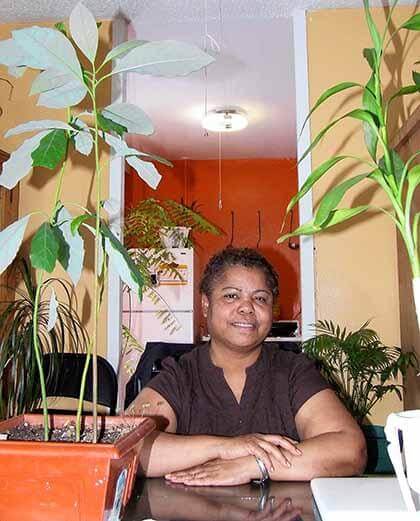By Joe Anuta
Elba Kercado, 55, is a single mother of three. She raised her daughters during the 1980s and ’90s, even though her own mother and father lived more than 1,500 miles away and knew nothing of her day-to-day existence.
Kercado could not do it on her own, and with no one to turn to for help, she found solace from city social programs.
In a way, New York helped raise her children. But according to Kercado, the safety net that once supported her family has now been transformed into a tangle of bureaucracy, where the process of getting help has become more like checking in with a parole officer.
“These have been very difficult times,” she said. “The process takes my self-esteem away, like I’m doing something wrong.”
But things were not always so tough.
At the mention of 1969, the year Kercado emigrated from Puerto Rico, she clasps her hands together and stares dreamily at the ceiling, as if she is literally watching a cartoon thought bubble containing memories of her childhood.
“Life was such a delight,” she said. “It was totally different.”
Kercado reminisced about 30-cent pizza slices, concerts and living with her extended family.
She went to high school on the Lower East Side in Manhattan and then to college while raising her first two children.
Kercado worked as a social worker at the Henry Street Settlement in Manhattan, where she met political elites like former Mayor David Dinkins, Michael Dukakis and even Princess Diana.
But her story is similar to New York’s, and both became progressively tougher and grittier with the start of the ’90s.
After a relationship soured, stress overcame Kercado, forcing her to quit working at the shelter in order to take care of her children and ushering in an era of deep depression.
“It hit me like a ton of bricks,” she said. “People don’t take it seriously.”
Kercado was in and out of hospitals and received disability payments from the city to feed her three daughters, now aged 27, 25 and 20.
In 1999, she moved the family from the Lower East Side to Ravenswood into a housing project where she currently lives.
Soon after moving, Kercado was diagnosed with emphysema and diabetes.
She collects $700 a month in disability checks, $600 of which goes straight to rent.
Instead of relying on her daughters to provide for her, Kercado applied for food stamps. But she was appalled at the invasive fingerprinting process and the amount of personal information she had to divulge.
Kercado was then denied food stamps because she could not produce her birth certificate.
“I’ve lived my whole life here. I went to high school here,” she said.
To sort matters out, her daughter had to miss work to go to the Supplemental Nutrition Assistance Program where the stamps are issued, and as of Tuesday Kercado was still waiting on her birth certificate to be shipped from Puerto Rico.
But Kercado has been stretching every dollar to the breaking point her whole life. It has often been a tough life, but it has prepared her well for her current struggles.
“I don’t like crying about it,” she said.
Two of her daughters have moved out on their own, and the youngest plans to go to college, but she does not want them to be burdened by her and in turn rely on the city’s generosity for another generation.
But even with two daughters out of the house, Kercado can still lavish her parenting skills on Mr. T, her pet turtle, along with the many plants sprouting from pots throughout her apartment.
“I keep my plants to give me life,” she said.
She has avocado and orange trees, along with bamboo and a variety of chili and spice plants. One tree reminds her of the thoroughfares and main city streets in Puerto Rico, which is now a distant memory, and one that stands in stark contrast to the industrial streets of Ravenswood.
Reach reporter Joe Anuta by e-mail at januta@cnglocal.com or by phone at 718-260-4566.



































